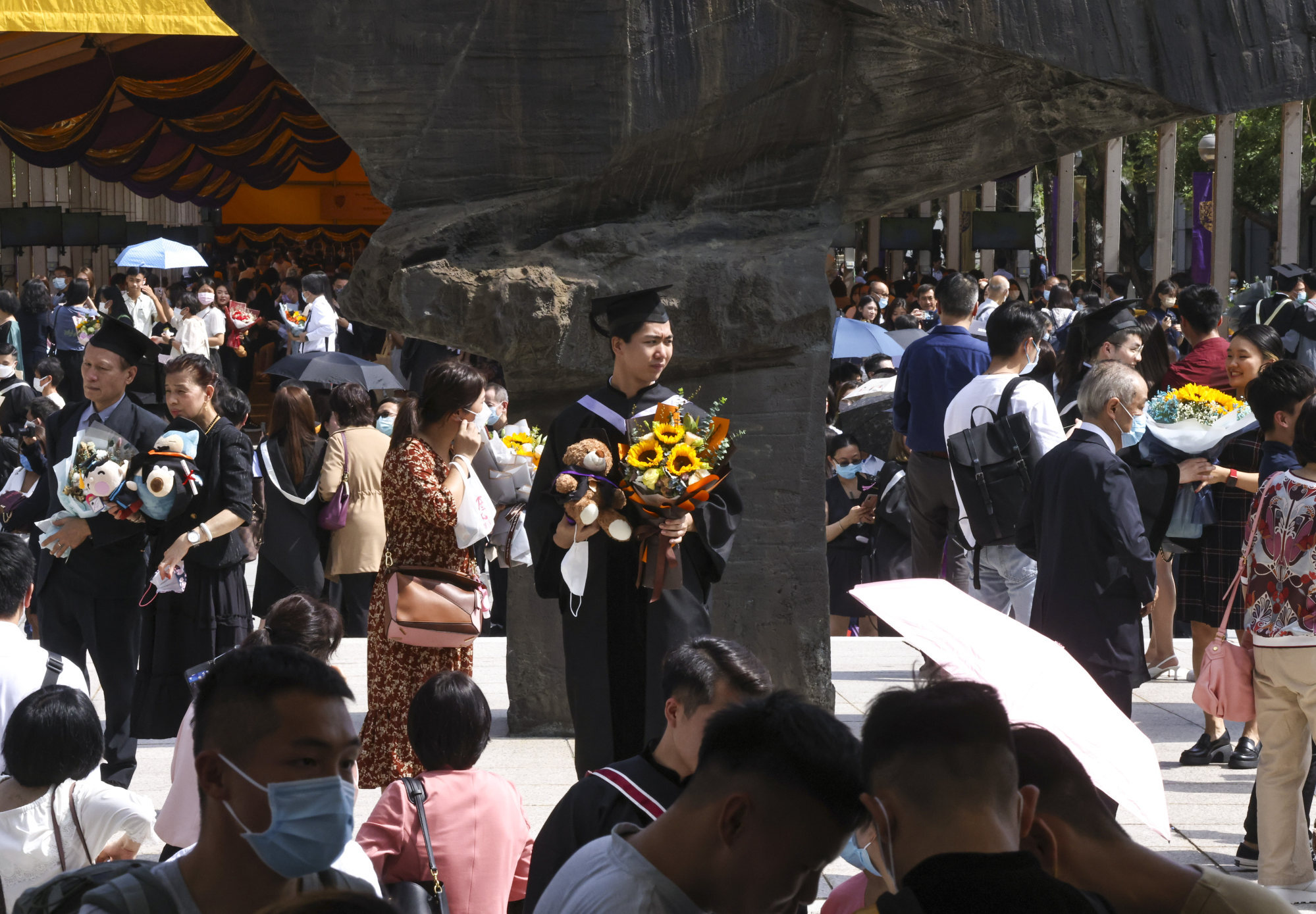
More jobs, better pay for Hong Kong graduates, but fewer plum management trainee roles on offer this year
- About 17,000 jobs listed on universities’ portal, with average starting pay rising to HK$18,336 a month
- Only 947 coveted trainee positions, lowest in three years, reflecting big employers’ downbeat mood
According to data from the Joint Institution Job Information System, a portal run by the city’s public universities, about 17,000 opportunities for entry roles were listed between January and March this year, 35 per cent more than during the same period in 2021.
The average starting salary for graduates in the first quarter of 2022 was HK$18,336 (US$2,338), up by 4 per cent compared to last year.
While the overall picture improved, there were only 947 management trainee vacancies on the job portal in the first three months of the year. The quarterly number declined from 2,531 in 2019 to 1,206 in 2020 and 1,049 last year.
The average salary for these highly competitive positions also declined slightly, from HK$20,344 in the first quarter of 2022 to HK$20,203 this year.
Pandemic derails plans to attract fresh Hong Kong graduates to Greater Bay Area
Hong Kong’s eight publicly subsidised universities produce about 30,000 graduates at all levels each year.
The number of available jobs for graduates declined from more than 20,000 in 2019 to around 12,000 in 2020 and last year amid the coronavirus pandemic.
Alexa Chow Yee-ping, managing director of recruitment agency ACTS Consulting, said the drop in management trainee vacancies partly reflected major employers’ view of Hong Kong’s economic prospects.
“Large companies invest heavily in the management trainee programme, with the training period lasting about one to two years. The gloomy outlook for Hong Kong makes them hesitate to put money on fresh graduates,” she said.
Chow noted that in the past, the selection process for management trainees involved several rounds of face-to-face interviews before successful candidates received job offers. Strict social-distancing measures during the pandemic had disrupted the process, she added.

Chow said some international companies were also worried whether Hong Kong’s “zero-Covid” policy would persist and affect the relocation plans of some regional headquarters.
But banking giant HSBC was among some big companies that have gone ahead with their hiring plans, with the firm saying it could take in more graduates than before.
“We hire more than 100 graduates every year in Hong Kong. In 2022, we plan to hire more to support our business growth and build our talent bench strength … they will join our graduate programme from the second half of this year as analysts and graduate trainees,” an HSBC spokesman said.
China announces job support as record 10.76 million students set to graduate
A survey by UOW College Hong Kong, which mainly provides sub-degree courses, suggested that last year was a difficult year for its graduating students, who faced a decline in wages and found it hard to secure an immediate job offer.
In a poll of graduates carried out between November and January, the college found only 9 per cent had entered the job market while the rest opted to pursue further studies.
Among the 100 respondents who had started working, the average monthly salary was HK$15,000, a 15 per cent drop from the previous year.
About 47 per cent of employed respondents got their jobs within a month, the poll found, two percentage points lower than the previous year. In 2019, about 65 per cent secured job offers within the same time period.

